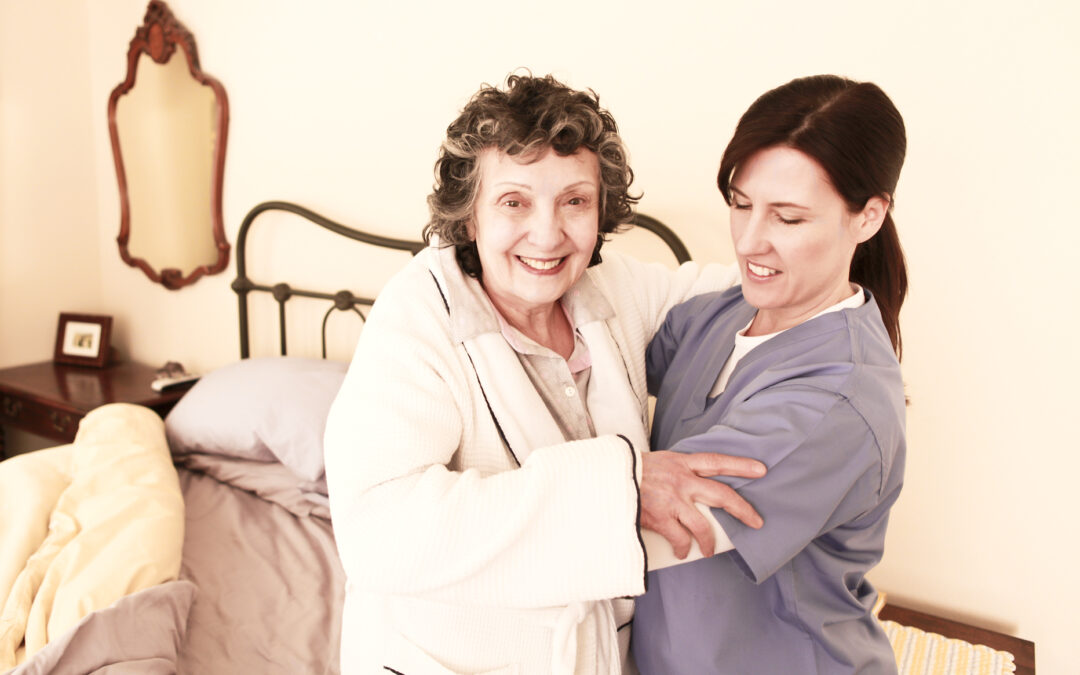The Health Implications of Caring for Someone with Dementia … and the Importance of Focusing on Emotional and Physical Well-Being
At Home Care Assistance, we have found that seniors describe “quality of life” as the ability to remain independent inside their homes—and that’s exactly what we aim to help people do through our integrated, science-based approach to supporting individual lifestyles and quality longevity.
And while many family members choose to care for their loved ones who suffer from Alzheimer’s and other forms of dementia, they often experience financial and emotional challenges over time.
In the United States, there are roughly 5.5 million Americans living with dementia. At $259 billion annually, the care for dementia costs more than the care for cancer ($77 billion) and heart disease ($102 billion) combined.
Behind these numbers lie hidden emotional and physical costs to family caregivers who help those with Alzheimer’s and other dementias manage daily living.
To grasp an understanding of the severity of these implications, Home Care Assistance conducted a survey through a third-party research firm. The study surveyed 670 family caregivers about their emotional and physical health.
Through careful analysis of our research findings, we concluded the following results:
Result 1: Dementia caregivers experience higher rates of physical, emotional, and mental “caregiver burnout” than non-dementia caregivers.
The survey found that dementia caregivers were seven times more likely to experience daily physical, emotional, and mental exhaustion from caregiving than non-dementia caregivers. Dementia caregivers were also three times more likely to feel extreme stress from their caregiving responsibilities than other types of caregivers.
Result 2: Dementia caregivers experience stress from watching their loved ones decline rather than stress from work and care balance other caregivers described experiencing.
In contrast to other types of care that may focus on recovery and rehabilitation, dementia caregiving can oftentimes be more challenging when a loved one is facing a long, inevitable deadline. Based on the survey results, 38 percent of dementia caregivers feel the most stress from watching their loved one decline, while 33 percent of those caring for a loved one without dementia feel the most stress from juggling their career and caregiving responsibilities. In comparing male caregivers to female caregivers, we found that male dementia caregivers were 21 percent more likely to feel stressed from having to juggle their job and caregiving responsibilities than female dementia caregivers.
Result 3: Female dementia caregivers experience higher rates of caregiver guilt.
Two-thirds of the dementia caregiver demographics are women. According to the survey, female dementia caregivers were 61 percent more likely to feel extreme guilt for not tending to their own family and children’s needs than non-dementia female caregivers.
These findings demonstrate that the health of family caregivers can be compromised when providing care for their loved ones with dementia. It’s clear that family caregivers need to keep in mind their own physical, mental, and emotional well-being by focusing on self-care. This might mean making time to participate in a favorite hobby, have a meal with friends, or read a book. It might mean going for a hike or taking the dog for a walk or going for a scenic drive.
At Home Care Assistance, we offer the support and resources needed for professional and family caregivers to best take care of an aging loved one with dementia and him or herself.
For more information, visit www.homecareassistanceprescott.com or call 928.325.2776,

